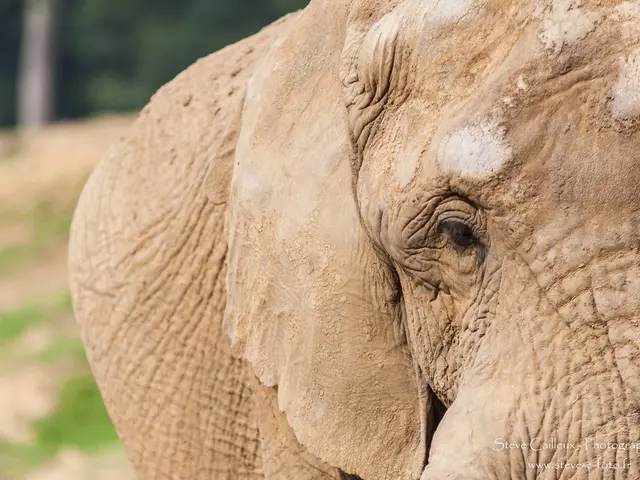Nine Strategies to Spark Daily Awe in Children Through Outdoor Adventures and Nature Discovery
Inspiring a Child's Curiosity Through Nature Exploration
Spending time in nature can stimulate a child's natural desire to learn and connect with the world around them. By encouraging outdoor play and exploration, we help foster essential cognitive thinking skills and a deep-rooted appreciation for the environment.
The Benefits of Natural Learning Environments
Nature-based settings create vital foundations for healthy cognitive and physical development in children. Hands-on experiences and sensory engagement in the outdoors promote improved concentration, working memory, creative problem-solving abilities, and spatial awareness [1]. Outdoor spaces also offer an array of stimuli that support emotional regulation, social skills, and physical coordination through unstructured play [2]. Research shows that children learning in natural settings may achieve up to 20% better academic performance than those confined to indoor environments [2].
Nature as a Source of Wonder and Curiosity
The ever-changing landscape of nature provides endless opportunities for spontaneous discovery and learning. As children encounter various phenomena such as spider webs, dewdrops, and bird nests, they are prompted to ask questions, investigate, and explore further. The changing seasons, weather patterns, and wildlife behaviors also serve as natural hooks for scientific inquiry [1]. By developing observational skills, children gain a deeper understanding of the world through firsthand experiences.
Creating Opportunities for Daily Exploration
Transform typical routines into nature-rich experiences with these practical strategies that integrate outdoor exploration into daily life. Setting up outdoor discovery zones, such as weather stations, magnification stations, and bird feeders [3], makes exploration accessible and engaging for young learners. Incorporating nature aspects into daily routines through morning nature checks, nature-themederrands, and scheduled nature breaks can help maintain a connection with the outdoors [2].
Teaching Essential Nature Observation Skills
Engaging all five senses facilitates a richer and more profound understanding of the environment. Touch, listen, smell, taste, and watch natural elements to develop a heightened sense of awareness [1]. Encourage mindful observation techniques such as spending time in a “sit spot” [4] to observe changes over time, focusing on one aspect during each visit.
Structured Nature-Based Learning Activities
Implementing nature-based learning experiences provides opportunities to deepen observation skills and strengthen the bond with nature. Starting a nature journal encourages daily entries that combine sketches, observations, and written reflections. Collecting natural treasures allows children to learn about local ecosystems and develop classification and sorting skills [2]. Conducting simple nature experiments demonstrates natural processes, such as plant growth patterns and decomposition.
Nurturing Environmental Stewardship
Fostering conservation values begins by demonstrating the interconnectedness of nature. Participating in local clean-up initiatives allows children to see the immediate impact of their actions. Encouraging children to observe wildlife, document seasonal changes, and contribute to projects like maintaining native plant patches or building bird feeders, cultivates an understanding of their role as stewards of the environment [5][2].
Promoting Sustainable Practices
Transforming daily routines into opportunities for practicing sustainability prepares children for responsible citizenship. Setting up home composting systems, starting small vegetable gardens, and reducing single-use plastics introduce principles of resource conservation and organic farming [2]. Teaching children to identify invasive species, protect native plants, and understand food cycles equips them with knowledge necessary for understanding and preserving local ecosystems [5].
Ensuring Safety and Accessibility
Establishing safety protocols, adapting activities for different ages, and making outdoor exploration accessible to all children are essential considerations for nurturing a lifelong love of nature. A simple first-aid kit, guidance on identifying hazardous plants, clear boundaries, and a buddy system promote safe and enjoyable experiences for children [4]. Modifying activities to accommodate varying abilities and interests ensures that exploration remains engaging for all children.
Cultivating a Community of Young Nature Enthusiasts
Connecting children with peers who share a passion for nature fosters a sense of camaraderie and purpose. Organizing group nature walks and creating neighborhood nature clubs provide shared opportunities for exploration, collaborative projects, and learning. Encouraging digital platforms for documenting discoveries and sharing nature journals enhances the sense of community and connection with nature [5].
Leveraging Technology to Enhance Discovery
Employing nature photography projects and educational apps supports children's understanding and engagement with the natural world. Smartphones or digital cameras can be used to capture images, while citizen science apps help identify plants, animals, and fungi. Weather tracking apps and stargazing tools can help children learn about various aspects of nature, while nature-themed apps foster early learning and skill development [6].
Connecting Nature Exploration to Academic Learning
Integrating natural elements into science, art, and language arts lessons encourages holistic learning experiences. Outdoor observations can lead to hands-on experiences, scientific experiments, and artistic creations. Encouraging children to express their observations through language and art supports the development of advanced communication skills [5].
Measuring Success in Nature-Based Learning
Success in nature-based learning can be measured by a child's growing curiosity, increased observation skills, and a sense of wonder for the world. Long-term impact is highlighted by their ongoing engagement with nature, continued observation of the environment, and a growing understanding of their role as stewards [7].
Science and education-and-self-development go hand in hand with nature exploration, as children can improve their cognitive thinking skills and gain a deeper understanding of the world through hands-on experiences and sensory engagement in natural settings. A lifestyle that promotes regular outdoor play and exploration benefits both cognitive development and emotional regulation, creating a nurturing environment for holistic learning.
Spending time in nature stimulates curiosity and fosters a lifelong appreciation for science, setting the foundation for a sustainable future. By teaching essential observation skills and incorporating nature elements into daily routines, we can cultivate a community of young nature enthusiasts who not only benefit from the numerous advantages of natural learning environments but also grow into responsible stewards of our planet.








